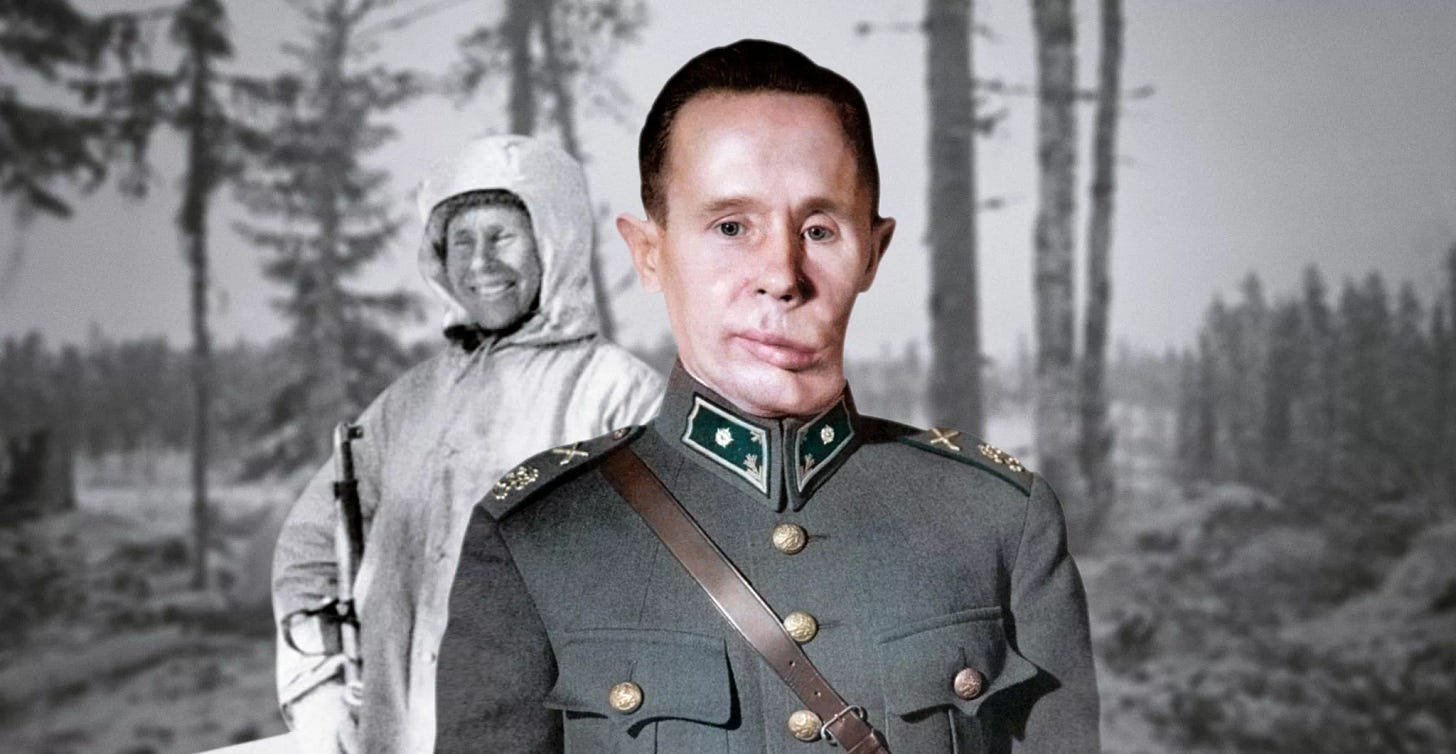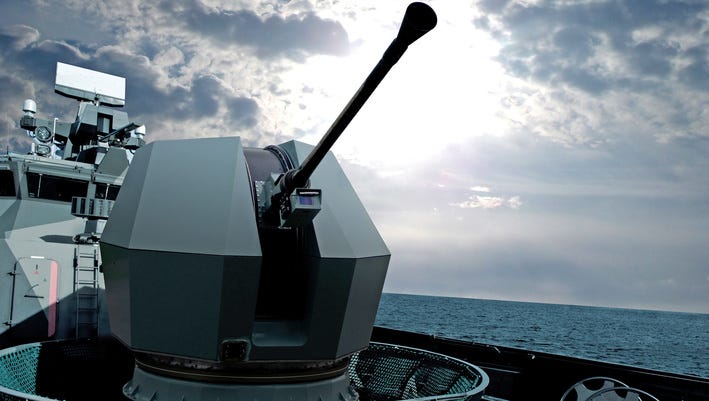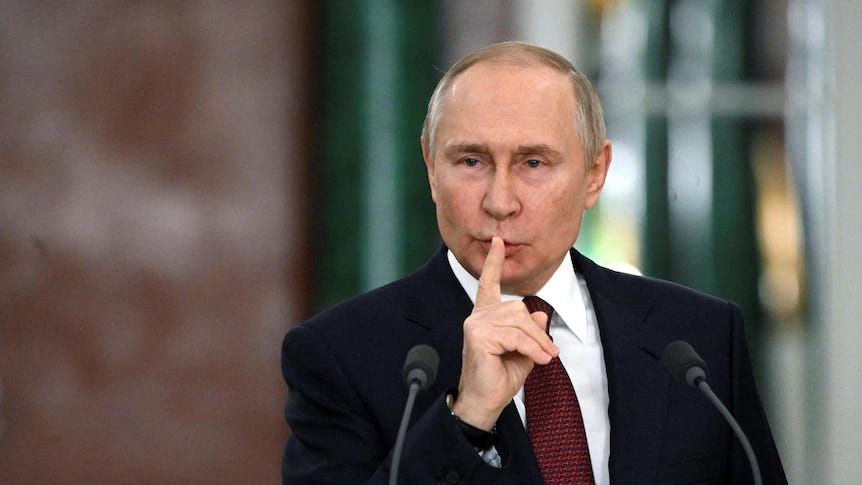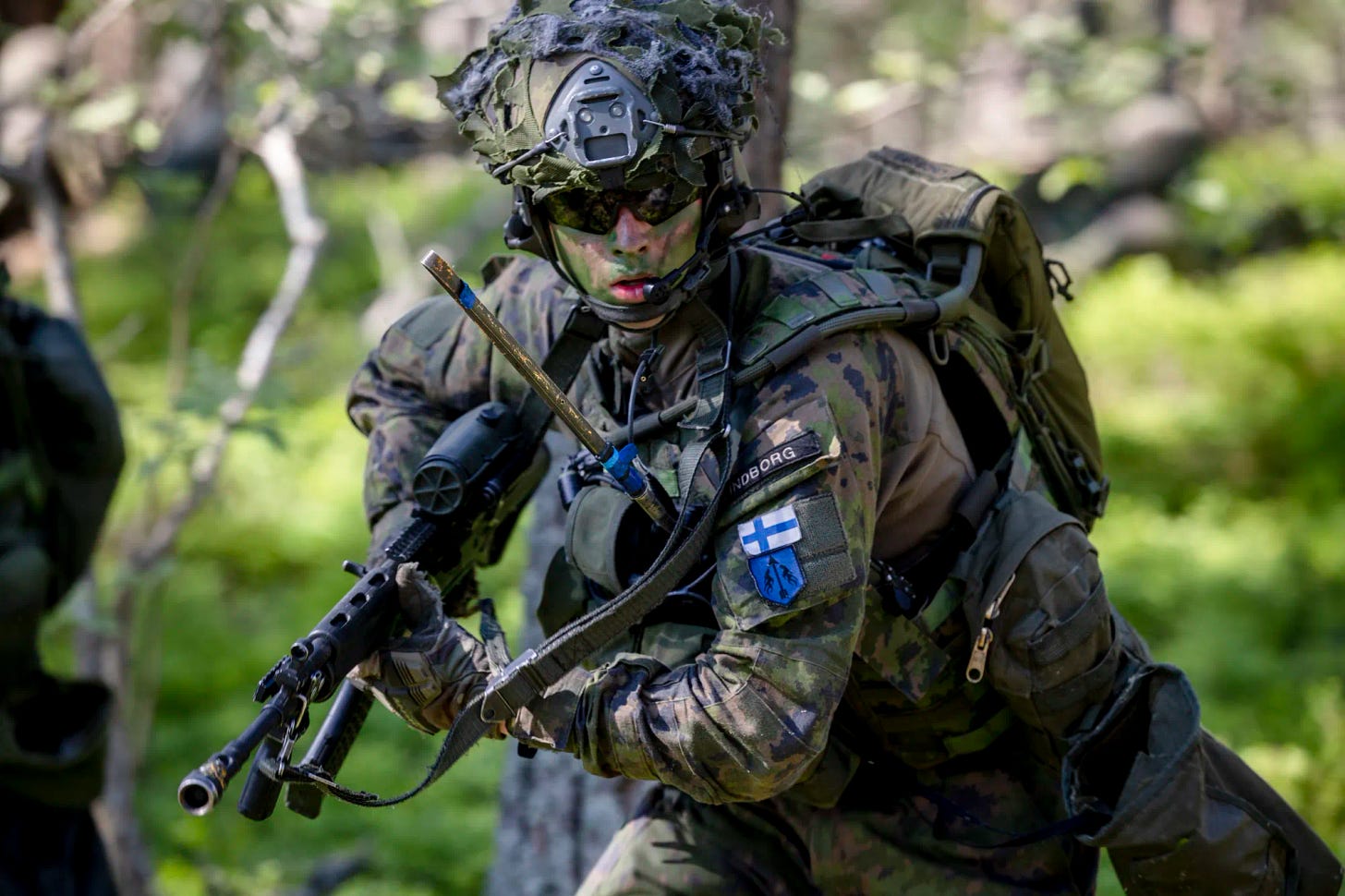A sea change has occurred in the foreign policy of one of the most peaceful regions in the world: last year, both Finland and Sweden applied to join NATO. This is especially remarkable as even at the height of the Cold War, both countries repeatedly rebuffed requests to join the Alliance, and Finland itself had much closer ties with the USSR.
Despite the two nations voting resoundingly for accession to the EU (a five-percent margin in Sweden and a seven-percent margin in Finland), NATO accession was never seriously considered. Until Russia’s all-out invasion of Ukraine, that is.
This stunning geopolitical blunder, which is all thanks to Vladimir Putin, has driven Sweden and Finland into the arms of NATO and the West as a whole. Despite previous Russian aggressions in Moldova, Georgia, and the Donbas, Sweden and Finland had been unwilling to join NATO. It reveals the absurd pro-Putin talking point that the invasion of Ukraine was a response to NATO expansion. In fact, it was Moscow’s decision to invade an independent Ukraine that made two much more militarily and geographically valuable nations break with ostensible neutrality and instead join NATO.
Finland itself has been prepared for a confrontation with Russia since the end of World War II. It is one of only five European countries to actively enforce total male conscription, along with Austria, Switzerland, Greece, and Ukraine. It has one of the largest and most experienced pools of reservists in the world, comparable only with Israel, and has a large defense industry. NATO has scored a coup with Finland’s accession; if needed it can now counter Russian aggression through the Finnish-Russian border as well. And Finland has an illustrious history of fighting Russians. Just ask anyone east of Ukraine who Simo Hayha is.

While Sweden does not practice active conscription like Finland, and does not occupy such a strategically valuable location, it is nonetheless another valued addition to the Western Alliance.
Sweden is the third-largest exporter of weapons per capita, behind only Israel and Russia, and from 2009–2019 was the ninth-largest exporter overall. More importantly, Swedish factories and dockyards produce many advanced weapons, and not just small arms. This impressive defense industry has practically been gifted to NATO by Putin, despite many Swedes’ attachment to, and preference for neutrality.

Finland has seen success in their quest for accession. After nearly a year of negotiations, Erdoğan’s intransigent foreign ministry finally gave the nod to Finland’s request—and forced Hungary’s Viktor Orban to do the same—while continuing to drag its feet on Sweden’s joining. (Turkey alleges that Sweden supports Kurdish militants, and demands the extradition of Kurdish dissidents who have fled to Sweden).
All this has meant that Sweden has not been able to join an international defense alliance right when it is most obviously needed. That is not to say that it is next to be attacked by Russia—that seems, at best, extremely unlikely—but that its bid for accession may lose steam if Sweden is continually kept out of the alliance by just two NATO nations. Swedish voters may take umbrage and stop supporting a bid for NATO membership if the nation is persistently prevented from joining.
There is some irony in Turkey being the country blocking Swedish accession; Turkey’s boundary disputes with fellow NATO member Greece are well-known, and Turkey’s invasion of Cyprus in 1974 literally divided the island nation, perhaps permanently, with its puppet government garnering minimal recognition internationally.
These combined factors have resulted in Stockholm facing an unusually rocky road to NATO accession, at a time when Russia has been the most aggressive.
There are some good signs, though: America is tying its delivery of F-16 fighter jets to Turkey to Ankara’s acquiescence to Swedish accession. With Sweden’s large defense industry, as well as Finland’s pool of talented warfighters and its strategic position, the forces of NATO will be immeasurably strengthened.

Despite claiming to oppose NATO expansion, Putin has strengthened NATO far more with the addition of Sweden and Finland than it ever received from allowing the Baltic states, Romania, Hungary, or any other of its post-Cold War additions. Moscow may or may not be losing the war on the ground in Ukraine. But it has definitely lost the geopolitical war.




